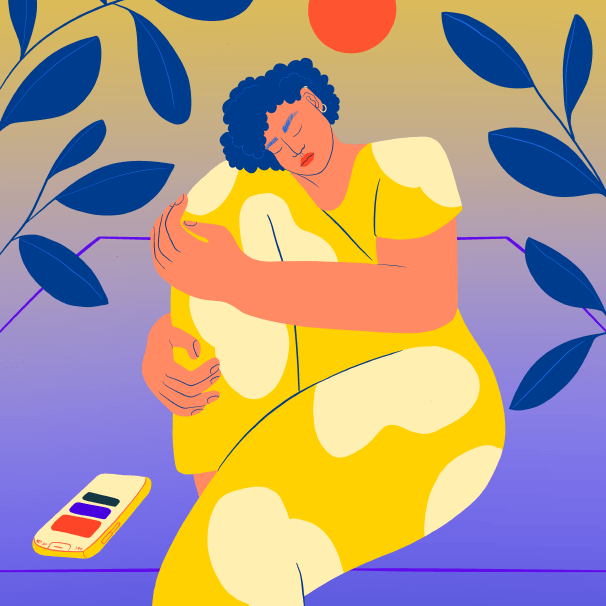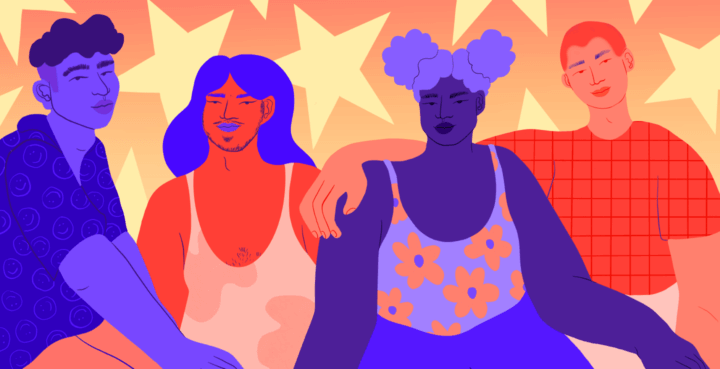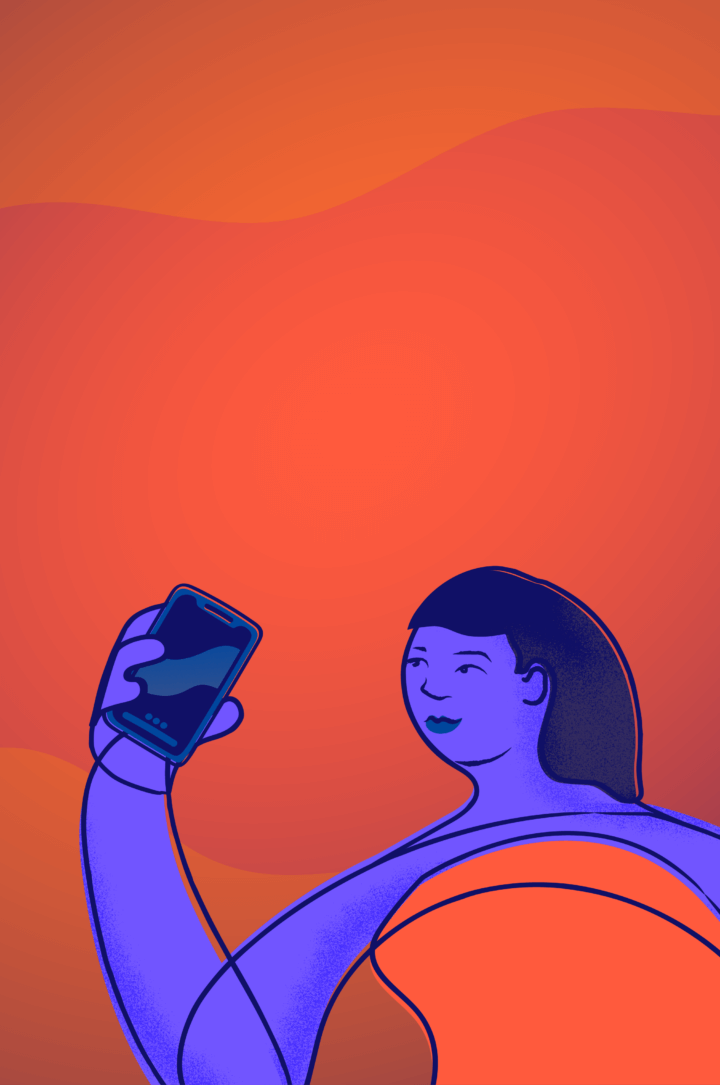At The Trevor Project, we know that LGBTQ+ youth are faced with additional pressures in the face of COVID-19. In addition to social distancing, isolation and potential quarantine, you may be either in close quarters with family members with whom you have had conflict based on your identity, or find yourself separated from family members/loved ones who have been a support to you in the past. In addition, you might be feeling resentment or anger towards people in your life who haven’t stepped up in the face of a national health crisis. In LGBTQ+ communities, “chosen family” often play a more significant role in your life than biological family, and you may find yourself separated from them and worried about their health — in addition to your own!
We want to emphasize that feeling stress and anxiety is a normal reaction to what is happening in the world right now. Some of the young people reaching out to our crisis services have been reporting a wide range of emotions, most of which feel intense and unmanageable. Some of these emotions include:
- Anxiety. LGBTQ+ youth are feeling anxiety about their own health, as well as about family members, money, when this will end, and leaving the house to get supplies. The list is very long and it is very normal to be feeling this way.
- Anger/resentment. Some people are feeling anger about having to stay with family members with whom they have difficult relationships, and anger at not having family members who have stepped up to support them. Other folks are feeling anger at the world in general and lack of access to resources.
- Restless. There is a sense of not being able to do anything and people are feeling trapped. You can’t hang out, take risks, or even engage in behaviors that might curb your feeling of restlessness. Some folks might consider using substances to curb this feeling of restlessness and boredom.
- Depression. You might be feeling hopeless about the world and about your future. There is a feeling of loss from the activities that should be happening but aren’t, and a lack of control over yourself and your future.
- Sadness. This is different from depression. Stressful times like these may highlight relationships in your life that are difficult or distant. This can cause increased sadness and feelings of loss.
Some young people may have been on a journey of recovery from substances or other mental health improvement that feel derailed by COVID-19. A trans youth might be in the process of transitioning and is afraid that this crisis will interrupt this process. A young person might have unstable housing or no housing, and may fear that developing symptoms will put their housing in jeopardy. There are also many situations where LGBTQ+ young people could be at greater risk of being exposed to COVID-19 with little or no access to health care.
How you can manage intense emotions during social distancing:
- Non-judgmental stance. Do not judge yourself or your reactions. You are allowed to feel your emotions without “shoulding” on yourself.
- Disconnect. Find time each day to disconnect from screens. I mean ALL screens. No phone, iPad, computer or TV. Use this time to center yourself without input from other people.
- Connect. Schedule online time with people with whom you have healthy connections. Even a 10 minute conversation can be helpful.
- Educate yourself. You may have special circumstances regarding housing or transitioning. Look for local resources to help you find out your rights and what you can do. Educate yourself about COVID-19 and try to use more mainstream sources like the CDC. Having actual information will decrease your anxiety.
- Find calm. Figure out what works for you to find calm – music, working out, connecting with people, drawing, etc. You may want to alternate these activities because they may become less effective if you rely on them too heavily.
- Set a schedule. Having a schedule for the day provides structure and some degree of certainty in your life.
- Go outside. You can go outside! Even if you are an indoorsy person, being outside for fresh air will do wonders for your mood. Obviously, you want to maintain six feet from other folks, but you are allowed outside. Try to find time every day!
- Find the little things. You don’t have to do anything major to feel better. Sometimes it’s the small things that help the most, such as taking a moment to enjoy the candy you are eating, listening to the birds, or the excitement of a new game. There are many small moments in the day. Try to find a few.
- Get help. You are not alone. We are here for you at the The Trevor Project, 24/7. There are also other resources including online psychotherapy and support. Rules around telehealth have been relaxed in this crisis, and it is easier than ever to find a clinician to see you online. There are also apps that could be helpful to you.
- Don’t give up. This will pass. Just like any emotion, all of the ones above will reach a peak and subside. Engage in your wellness strategies, reach out to someone (we are here!), or talk a walk. The human body was not meant to maintain intense negative emotions. If you ride out the wave, it will diminish. As humans, we are pretty predictable in that way.
We know that you are feeling a ton of emotions every day and that some days might feel harder than others. We are here to support you during COVID no matter what, and you can be there for yourself, too!
Tia Dole (she/her), Ph.D.
Chief Clinical Operations Officer
The Trevor Project
If you or someone you know is feeling hopeless or suicidal, contact The Trevor Project’s TrevorLifeline 24/7 at 1-866-488-7386, via chat at www.TheTrevorProject.org/Help, or by texting START to 678-678.
Help us continue to provide 24/7 support to LGBTQ+ young people and empower allies to deepen their commitment through advocacy, education, and affirming content.


